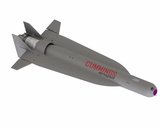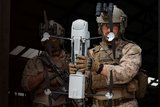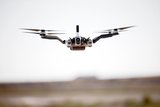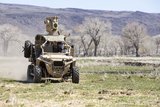Raytheon selects Aurora for DARPA programme
Aurora Flight Sciences today announced that it has been selected by Raytheon as a team member for the Defense Advanced Research Projects Agency (DARPA) Persistent Close Air Support (PCAS) programme. The company made the announcement in a 16 February 2012 company statement.
Raytheon's PCAS solution aims to develop technologies that significantly reduce the timeline for close air support through improved coordination among Joint Terminal Attack Controllers (JTACs), airborne sensors and weapon systems. According to Aurora, it has been selected to lead the air vehicle platform section, and will be responsible for leveraging its extensive unmanned systems technology to develop an unmanned version of the Air Force’s A-10 aircraft for demonstrating the PCAS technology.
Raytheon’s PCAS team members also include Rockwell Collins and GE Aviation. PCAS will incorporate a ‘system-of-systems’ approach to demonstrate the ability to digitally task a Close Air Support (CAS) platform from the ground. Raytheon will use an open architecture approach to enable the PCAS technology to be utilised in future command and control systems.
More from Uncrewed Vehicles
-
![Cummings Aerospace showcases Hellhound loitering munition designed for US Army’s LASSO programme (video)]()
Cummings Aerospace showcases Hellhound loitering munition designed for US Army’s LASSO programme (video)
Cummings Aerospace presented its turbojet-powered Hellhound loitering munition at SOF Week 2025, offering a man-portable solution aligned with the US Army’s LASSO requirements.
-
![SOF Week 2025: PDW unveils attritable FPV drone for SOF operations at scale]()
SOF Week 2025: PDW unveils attritable FPV drone for SOF operations at scale
PDW has revealed its Attritable Multirotor First Person View drone at SOF Week 2025, offering special operations forces a low-cost, rapidly deployable platform for strike and ISR missions, inspired by battlefield lessons from Ukraine.
-
![SOF Week 2025: Teledyne FLIR white paper provides guidance on reusable loitering munitions]()
SOF Week 2025: Teledyne FLIR white paper provides guidance on reusable loitering munitions
Teledyne FLIR is highlighting the emerging requirements for 'recoverable and re-usable' loitering munitions across the contemporary operating environment during this week’s SOF Week conference in Tampa, Florida.
-
![SOF Week 2025: Kraken Technology group debuts K3 Scout USV in North America]()
SOF Week 2025: Kraken Technology group debuts K3 Scout USV in North America
High-performance maritime industry player Kraken Technology Group, based in the UK, has used the SOF Week conference in Tampa, Florida this week to debut its K3 Scout uncrewed surface vessel (USV) to the North American market.
-
![Palladyne AI and Red Cat to demonstrate capabilities for autonomous drone swarms to the US military]()
Palladyne AI and Red Cat to demonstrate capabilities for autonomous drone swarms to the US military
Red Cat and Palladyne AI recently conducted a cross-platform collaborative flight involving three diverse heterogeneous drones.
-
Jammer resistant drone designs spark search for countermeasures
The Russia-Ukraine conflict has driven another stage of evolution for drones and the counter measures to defend against them.

























